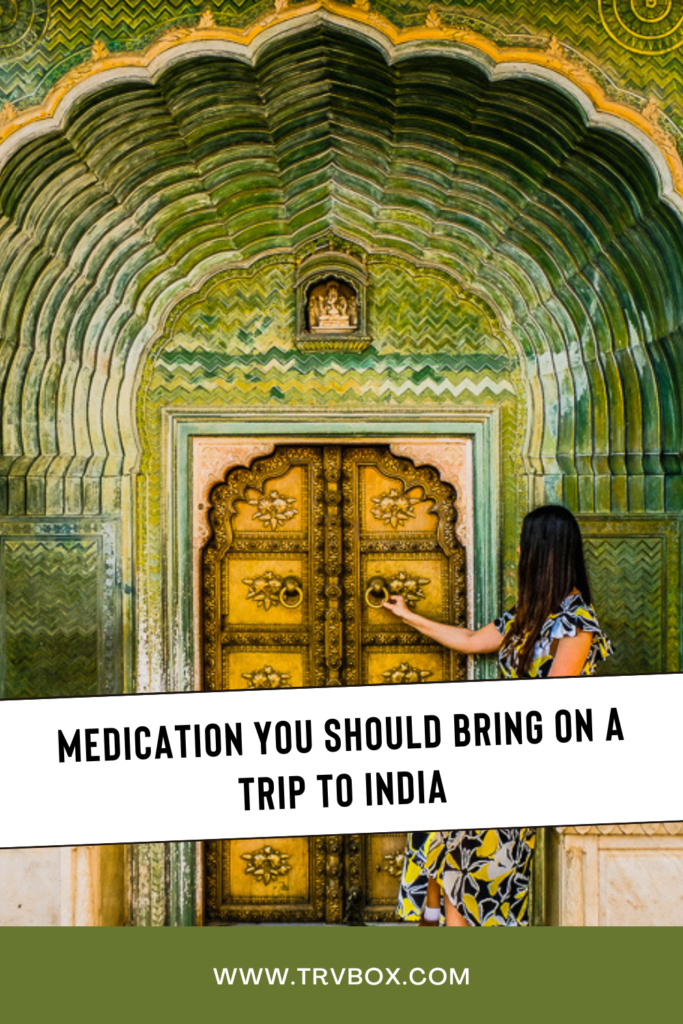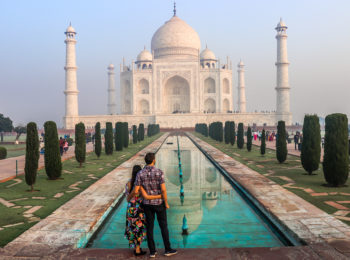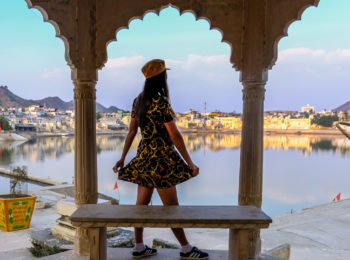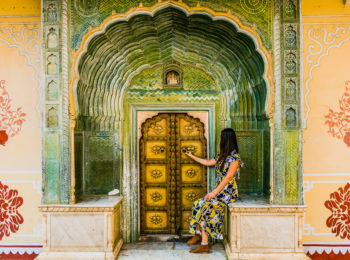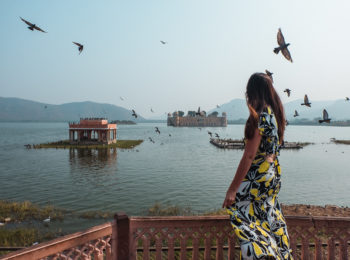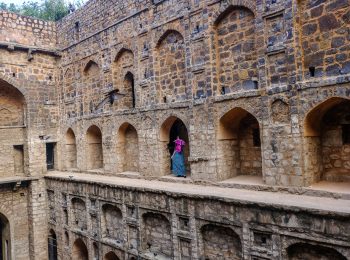I’m making preparations for my third trip to India at the moment (I was there on an after-army trip and a long trip at the age of 30). I’ve tried to decide which medications I should take with me, then remembered all the illnesses I’ve caught in India, which helped me decide what I need with me this time.
Since I’ve got plenty of expertise in the area, I decided to channel it into the blog and write an extended post about things you should bring with you when planning a trip to this wonderous country.
Be warned that this post might be a bit stressful, since I’ve had many problems in India, but…
Looking on the bright side, I’m fine, I’ve survived it all and if I’m returning there for the third time, it means it wasn’t that bad and that India is worth revisiting 🙂
Our trip destinations in India:
Delhi
Jaipur
Pushkar
Agra
Our itinerary :
Amazing two-week itinerary for Rajasthan, Delhi and Rishikesh – A custom, personalized trip
Diseases in India
Scabias
Let’s start with the worst thing (that I had) – Scabies!
Yes, it’s not a made up disease. It’s a real disease and I wouldn’t wish it for my worst enemies. It’s an extremely itchy disease and you need to be aware that it might appear while you’re in India.
Fortunately, my disease appeared after I’ve already returned home (it only physically manifests after a month) and the next day I got it treated. Treatment itself is very simple and it’s just a cream you rub over your entire body. This disease is very contagious, so it’s important to identify it quickly or you might infect people around you. You have to wash the clothes and bed sheets you’ve come in contact with.
How to identify scabies? A crazy itch all over your body!! And you see small holes in your skin that look like borrows. How to treat it? A cream spread over your entire body. Treatment is based on a cream which contains Permethrin (Commercial name: Lyclear) at a 5% concentration and kills the mites. Dysentery
Amoebas in the stomach. This is actually a disease which followed me for three months on the trip. I think most people get it in India and you just need to be prepared that it might happen to you as well. It’s unpleasant and can mess up your trip, so you should bring an antibiotic treatment with you just in case.
How to identify dysentery? The description is quite disgusting, so you’re invited to read about it on Wikipedia.
How to treat it? The first thing is to drink a lot of water (To avoid dehydration), the medicinal treatment is antibiotics, but you need to fit it to the type of bacteria. To treat an infection by the Shigella bacteria you may use several types of antibiotics, like Ciprofloxacin or Azithromycin and to treat amoebic dysentery you may use an antibiotic called Metronidazole. Asthma attack
When I flew to India after the army, I’ve had some pretty severe asthma attacks. Since we traveled on a very low budget, we mostly stayed at places with a rather low level of sanitation (We’ve even found mold in our rooms a few times). If you have allergies, sensitivities or chronic illnesses – I recommend staying at rooms with a high level of hygiene, even if it costs you a bit more money.
How to identify an asthma attack? Severe shortness of breath
How to treat it? An inhaler, like Ventolin (Salbutamol) Food poisoning
I’ve suffered of that, too. Honestly, I don’t know how it happened, since Roman and I ate the exact same things, but I guess I’m more prone that he is, and was taking a food supplement at the time which must have been a bad combination with the Indian food.
I’ve had horrid stomach ache like I’ve never felt before.
How to identify food poisoning? A stomach ache you can’t ignore
How to treat it? Go to the ER. I’ve had such terrible pains, we had to call an ambulance. At the ER I received an infusion and had many tests done. After a few hours I was discharged, and everything was fine, but I highly recommend not ignore strong pains. I tried to ignore the pain for a whole day, but as I saw that it kept worsening over time with no improvement to be seen, I had no other choice. Motorbike accident
Didn’t happen to me, but to a good friend I was traveling with.
She drove on a bike with a local guy who’s been driving his whole life, but sometimes you get unlucky and he slipped on the road. My friend suffered severe injuries to her leg and was hospitalized for a month at a private hospital in Delhi. I don’t have much to say about this type of situation, as accidents may happen (Even if you avoid riding on a motorcycle).
My recommendation is to make sure you have good health insurance. My friend was lucky to have good insurance and it paid for her entire stay at a private hospital, which has really high expenses!! Let’s just say… If you do have an accident in India, it’s better to go to a private hospital. A post I’ve written about my recommendations regarding travel insurance.
As you can see, you need to prepare for an India trip in terms of medicine and insurance. So, I’ve prepared a list of all the medication I recommend for you to have with you, but of course you should visit a travel clinic and consult a doctor for his recommendations, as well as checking which vaccines you should get before the trip, depending on the areas you’ll be traveling in.
I personally recommend bringing many medications despite probably not using most of them. It’s always better to be overly prepared. I do, of course, recommend not taking medication like antibiotics on your own.
Nowadays, most HMOs have the option to correspond with a doctor, and many different insurances allow you to chat with a doctor. What’s important is to consult a doctor and tell him about your symptoms.
List of medications to take to India
Some require a prescription, and some don’t. It is better you get them upfront in your home country and carry it with you:
- Antibiotics – A few types (Consult a doctor for recommendation), to treat dysentery, sore throat and more
- Scabies cream
- If you have a chronic illness, it’s important to bring enough medication for treatment and in case of an episode
- Allergy pills – You may encounter allergies in a foreign country which you weren’t very aware of, it’s always good to have allergy pills with you, some don’t require a prescription like Allergy.
- Eye drops – Always good to have with you, in case of dryness or scratching
- Charcoal pills – Really good pills to treat stomach ache and fever, I don’t personally recommend anti-diarrhea or constipation pills, as they often have bad side-effects. I think it’s better to attempt treatment with charcoal pills and if it gets any worse – contact a doctor or go to the ER
- Dexamol cold – In case of a bad cold
- Altitude pills – for height sickness. Be aware, this is a pill you really shouldn’t take without good reason, even if you are at quite a high altitude. A friend of mine and I took them while going on Manali mountain and the side effects were unpleasant. I recommend having the pill with you and only taking it if you feel like you need it.
- Natural remedies for nausea – The rides inside India can be rough and cause nausea. I recommend having natural remedies to take a day before the ride/during it. It helped me a lot.
- Pills for fever and headaches – Always good to have some with you, such as Ibuprofen, Advil or Acamol (Paracetamol). Depending on what you’re used to taking.
- Antibiotic cream – Like Synthomycine, for cases of infection
- Anti-fungal cream – To treat fungal infections
- Malaria pills – They are somewhat expensive, but if a doctor recommends having them with you, you definitely should
- Antifungal ointments
- Antibacterial ointments
- Antiseptic wound cleanser
Update from our last trip to India
Somehow the trip itself went smoothly without any illnesses or accidents 🙂 But when I arrived in Israel I experienced feelings of nausea and lack of appetite for a few weeks, when I went to the doctor he asked if I had recently been to a tropical country and I told him yes in India. He sent me for a stool test and it turned out that I had a parasite in my stomach. I was given an antibiotic that is suitable for this parasite and it really went away after a few days. List of first aid equipment for India
If you travel in big cities then you will be able to find these things in stores, but if you go on a trip to untouristed villages there is a chance that you will not find this equipment. That’s why it’s better to arrive with it already from the country or to purchase directly when you arrive in India.
- Nose spray
- Hand sanitizer or wipes
- Alcohol-based hand sanitizer containing at least 60% alcohol or antibacterial hand wipes
- Toilet paper
- Aloe gel – For sunburns
- First-aid kit – Bandages, disinfectant, Band-Aids
- Earplugs
List of vaccinations for those going to India
In 2015 we went on a long trip to East Asia and took vaccinations that would suit the countries of Thailand, India, Laos and Vietnam. We knew that we would also travel in less touristic areas and go trekking in nature. India is considered a third world country so we didn’t want to take a risk. Apart from digestive problems we had no other illnesses during the trip.
I took the list of vaccinations from the Rambam Hospital website (in Israel). It is advisable to consult a doctor before the trip and ask for recommended vaccinations for India.
The ones we took are:
- Tetanus (not for those who have been vaccinated in the last five years)
- Measles-rubella-rubella (not for those who have been vaccinated twice before)
- Rabies (for some travelers)
- Japanese brain fever (for some travelers)
- Meningitis (for some travelers).
- Typhoid fever (not for those who have been vaccinated in the last three years)
- Hepatitis A (not for those previously vaccinated)
- Hepatitis B (not for those previously vaccinated
One other good source of up-to-date information would be the Centers for Disease Control website where you might find recent updates on the health situation in India where it comes to any outbreaks, like the recent Zika outbreak on August 2024.
In general I think it would make sense to take preventive measures that can minimize illness such as washing your hands or use hand sanitizer, drink bottled or filtered water and avoid raw foods. Banned medicines in India
Make sure to check online for whether you can bring your prescribed medicine with your to India. Some are not allowed or not sold in India, so make sure to figure what would be the alternative medicine in India and how to get it.
You will find local pharmacies where you can buy medicine and other local alternatives (I didn’t try) such as Cipla and herbal remedies like ginger tablets for nausea. If you do happen to need a prescribed medicine, you’ll have to find a local doctor and get a local prescription which the local pharmacies will honor. Pin below to save on Pinterest
